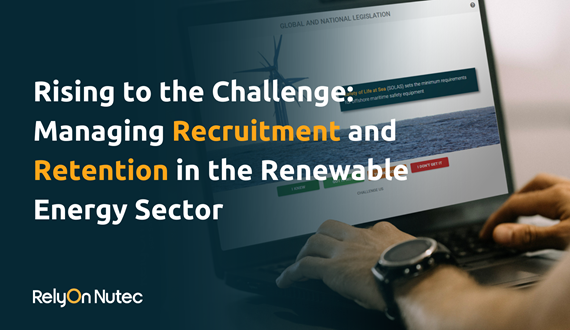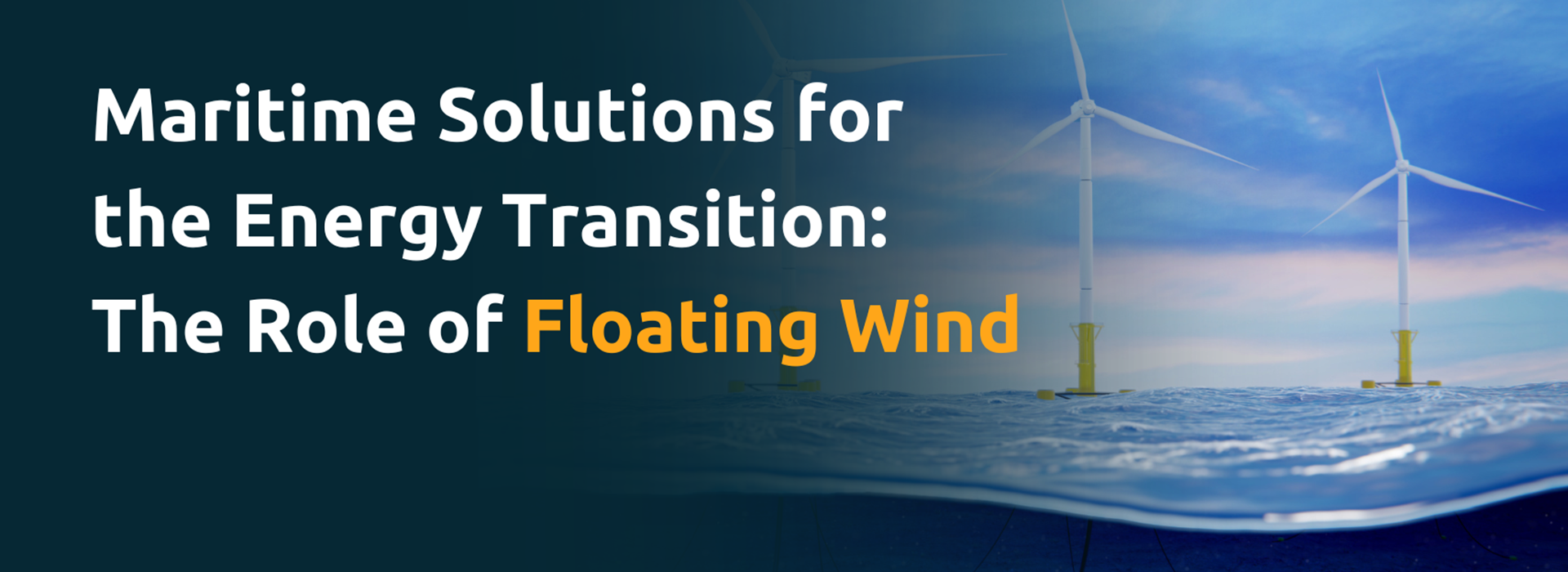Ok
Wind energy plays an increasingly important role in generating sustainable and green energy. Hereby, floating offshore wind technology emerges as a critical enabler for unlocking additional offshore wind potential. By placing wind turbines on floating foundations, previously inaccessible deep waters can be accessed, expanding the reach of clean energy generation to new areas. Floating offshore wind builds upon existing offshore wind infrastructure and supply chains, making it a cost-effective and scalable solution in the future.
What is floating wind?
Floating wind is a technology that harnesses wind energy from turbines mounted on buoyant platforms in deep offshore waters. Unlike traditional offshore wind turbines anchored to the seabed, floating wind turbines are tethered to the ocean floor using mooring systems, allowing them to operate in locations with water depths that exceed the range of conventional fixed-bottom turbines. These innovative platforms use a combination of ballast and buoyancy to remain afloat, making it possible to tap into powerful wind resources in deeper, more remote ocean areas. Floating wind farms hold immense potential for expanding renewable energy generation and are a key player in the transition to a sustainable and greener energy future.
What are the advantages of floating wind?
Floating wind offers several distinct advantages in the realm of offshore renewable energy, as it unlocks access to deeper waters, where wind resources are often stronger and more consistent. This expansion of additional available sites greatly increases the potential for energy generation. Additionally, floating wind turbines can be situated farther from the coast, reducing visual impact and potential conflicts with other marine activities. Unlike fixed-bottom turbines, floating platforms can be towed to shore for maintenance and more easily decommissioned, minimizing their long-term environmental footprint.
Furthermore, floating wind turbines have the potential to reduce seabed disturbance and can be deployed in areas with uneven or challenging seafloors. In addition, the installation time of the turbine on the floater is performed on the quayside rather than offshore, making this operation less dependent on offshore weather elements. Different floater designs are currently being developed in the market, with a technology readiness that is expected to become bankable for some of them by the second half of this decade. A full industrialization of floating wind turbines is then consequently expected after 2030, when the cost-out initiatives and maturation of the concepts will make bigger scale floating windfarms commercially viable.
How can we support this development?
At RelyOn Nutec, we are eager to contribute our share to the growth of renewable energy, including the on-going development activities associated with floating wind and also the required upgrade of the relevant port infrastructures. As a global provider of safety and survival training, we bring significant potential for the safety and efficiency of operations across all the different project phases. This is not only a relevant topic during construction, but even more during early engineering and feasibility, with the aim to identify constraints, issues or opportunities for improvement at the early stage. At RelyOn Nutec, we provide both on-site and e-learning training of the relevant personnel and the application of digital capabilities like state of the art lifting simulators. With our focus on lifting simulation training, GWO blended courses, as well as compliance/competence management, and control of work solutions, we are at the forefront of equipping professionals with the necessary skills and knowledge to excel in this dynamic sector.
With a combination of digital capabilities, physical training centers and modern computer-based simulators, with incredibly realistic operating scenarios, we are able to contribute to the Front End Engineering and Safety by Design approach associated with floater assembly operations at the harbor. Our expertise in this domain, coupled with the utilization of innovative digital tools, collectively enhances the safety and operational efficiency of our clients. We understand the criticality of adopting a proactive approach, and our training solutions are meticulously designed to ensure that our clients are well-prepared to navigate the complexities and challenges of the wind industry. By combining our technological prowess with industry-specific knowledge, we empower our clients to optimize their processes, minimize risks, and achieve higher standards of safety and efficiency throughout the project lifecycle.
Conclusion
As the floating wind sector continues to grow, we remain committed to providing high-quality training programs that enhance safety, expertise, and efficiency. Through lifting simulation training, GWO blended courses, compliance/competence management, and control of work solutions, we empower professionals in the wind industry to navigate the challenges and complexities of their roles. By investing in comprehensive training, organizations can mitigate risks, optimize operations, and contribute to a safer and more sustainable future in the floating wind energy sector. If you would like to have more insights into our training capabilities, you can download our lifting simulation whitepaper here.
Next read
-

-

-
 Article 14. June 2024
Article 14. June 2024 -

Ensuring Safety and Efficiency: IRATA Rope Access Training for a Safer Work Environment
In industries such as oil & gas and renewables, where accessing challenging locations is common, rope access methods provide a safe and efficient solution. These methods offer technicians a secure means of navigating heights and restricted areas while minimizing environmental impact. However, proficiency in rope access requires proper training and a globally accepted safety education.
Article 4. June 2024 -

Polaris Sells RelyOn Nutec to Mubadala Capital
The acquisition, part of Mubadala Capital’s flagship Private Equity Fund IV, strengthens the asset manager’s footprint in the business services sector.
Article 24. May 2024 -

RelyOn Nutec Acquires Electrical Training and Consultancy Specialist Quercus Technical Services, Fast-tracking European Electrical Capability Build
Effective May 21st, RelyOn Nutec has acquired Quercus Technical Services BV, one of the largest specialist electrical safety and skills training organizations in the Netherlands. The acquisition of Quercus bolsters RelyOn Nutec’s position in the electrical training market and accelerates its European roll out.
Article 22. May 2024 -

-
 Article 2. May 2024
Article 2. May 2024
